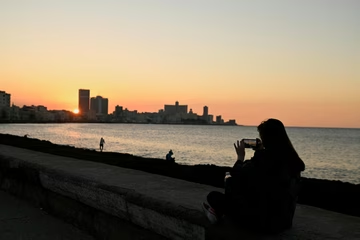Microbiologist: Only long term solution to BiH's Covid infections is vaccination

Bosnia will likely reduce the number of Covid infections by adhering to anti-pandemic measures, in the short term, but the long-term solution to this problem is the vaccination, Warwick University microbiologist Branko Rihtman told N1 Friday, adding that all vaccines are safe.
Oglas
"The vaccination process is going a lot slower than it should. It is a pity that they (Bosnian authorities) didn’t get more vaccines sooner, but we should also look forward to what’s coming. It bothers me that they don't have any information campaigns because we have information that a large number of people don’t want to be vaccinated. Whether out of fear or because they have no (proper) information. There should be a place where citizens can get all the information and solve all their doubts," Rihtman said.
According to him, a great percentage of Brittons were vaccinated precisely because they were well informed.
He also noted that people should not avoid taking the AstraZeneca vaccine because its side effects are well known by now.
If you’ve had blood-clotting issues, but some very, very specific issues, not the usual thrombosis then you should be careful and discuss it with your doctors. In any case, one shouldn't wait for some other vaccine to arrive. If you have a vaccine today, you should take it,” Rihtman told N1.
When asked if people with allergies to penicillin or pollen are at risk of developing side effects from vaccines, he said they were not.
"Only if they have anaphylactic reactions to a large number of chemicals and foods, then they should act with caution and in agreement with the doctor," he said.
He also emphasized that people who have recently contracted the coronavirus should be vaccinated if they have the opportunity, and not wait for some time to pass.
"Antibodies do not protect against new strains of the virus, vaccines do," the microbiologist stressed.
Rihtman also stated that vaccines are safe for pregnant women and mothers who have just had babies adding that vaccines do not affect fertility in young people. Only cases of delayed menstrual cycles have been reported, but, he stressed, it returns to normal after the first or second cycle.
"Women don’t need to be alarmed," he said.
Commenting on the increased number of people who can enter Bosnia without a negative PCR test, the expert said three non-pharmaceutical measures are most effective:
“Border control, ban on gathering of people in cafes and restaurants and online classes for students. Once we abolish these three measures, while not being vaccinated at the same time, it’s only a matter of time when the numbers will start rising,” Rihtman warned.
Kakvo je tvoje mišljenje o ovome?
Učestvuj u diskusiji ili pročitaj komentare
Oglas
Kakvo je tvoje mišljenje o ovome?
Učestvuj u diskusiji ili pročitaj komentare
Oglas





 Srbija
Srbija
 Hrvatska
Hrvatska
 Slovenija
Slovenija


























































